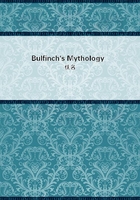
第92章
The Fall of Troy. Return of the Greeks. Orestes and Electra The story of the Iliad ends with the death of Hector, and it is from the Odyssey and later poems that we learn the fate of the other heroes. After the death of Hector, Troy did not immediately fall, but receiving aid from new allies still continued its resistance. One of these allies was Memnon, the AETHIOPIAN prince, whose story we have already told. Another was Penthesilea, queen of the Amazons, who came with a band of female warriors. All the authorities attest their valor and the fearful effect of their war-cry. Penthesilea slew many of the bravest warriors, but was at last slain by Achilles. But when the hero bent over his fallen foe, and contemplated her beauty, youth and valor, he bitterly regretted his victory. Thersites, an insolent brawler and demagogue, ridiculed his grief, and was in consequence slain by the hero.
Achilles by chance had seen Polyxena, daughter of King Priam, perhaps on occasion of the truce which was allowed the Trojans for the burial of Hector. He was captivated with her charms, and to win her in marriage agreed to use his influence with the Greeks to grant peace to Troy. While in the temple of Apollo, negotiating the marriage, Paris discharged at him a poisoned arrow, which guided by Apollo, wounded Achilles in the heel, the only vulnerable part about him. For Thetis, his mother, had dipped him when an infant in the river Styx, which made every part of him invulnerable except the heel by which she held him.
(The story of the invulnerability of Achilles is not found in Homer, and is inconsistent with his account. For how could Achilles require the aid of celestial armor if he were invulnerable?)The body of Achilles, so treacherously slain, was rescued by Ajax and Ulysses. Thetis directed the Greeks to bestow her son's armor on the hero who, of all survivors, should be judged most deserving of it. Ajax and Ulysses were the only claimants; a select number of the other chiefs were appointed to award the prize. It was awarded to Ulysses, thus placing wisdom before valor; whereupon Ajax slew himself. On the spot where his blood sank into the earth a flower sprang up, called the hyacinth, bearing on its leaves the first two letters of the name of Ajax, Ai, the Greek for "woe." Thus Ajax is a claimant with the boy Hyacinthus for the honor of giving birth to this flower. There is a species of Larkspur which represents the hyacinth of the poets in preserving the memory of this event, the Delphinium Ajacis Ajax's Larkspur.
It was now discovered that Troy could not be taken but by the arrows of Hercules. They were in possession of Philoctetes, the friend who had been with Hercules at the last, and lighted his funeral pyre. Philoctetes had joined the Grecian expedition against Troy, but had accidentally wounded his foot with one of the poisoned arrows, and the smell from his wound proved so offensive that his companions carried him to the Isle of Lemnos and left him there. Diomedes was now sent to induce him to rejoin the army. He succeeded. Philoctetes was cured of his wound by Machaon, and Paris was the first victim of the fatal arrows. In his distress Paris bethought him of one whom in his prosperity he had forgotten. This was the nymph OEnone, whom he had married when a youth, and had abandoned for the fatal beauty Helen. OEnone, remembering the wrongs she had suffered, refused to heal the wound, and Paris went back to Troy and died. OEnone quickly repented, and hastened after him with remedies, but came too late, and in her grief hung herself.
Tennyson has chosen OEnone as the subject of a short poem; but he has omitted the concluding part of the story, the return of Paris wounded, her cruelty and subsequent repentance.
"__________Hither came at noon Mournful OENONE, wandering forlorn Of Paris, once her playmate on the hills.
Her cheek had lost the rose, and round her neck Floated her hair, or seemed to float in rest.
She, leaning on a fragment twined with vine, Sang to the stillness, till the mountain-shade Sloped downward to her seat from the upper cliff.
"'O Mother Ida, many-fountain'd Ida, Dear Mother Ida, hearken ere I die.
I waited underneath the dawning hills, Aloft the mountain lawn was dewy-dark, And dewy-dark aloft the mountain pine:
Beautiful Paris, evil-hearted Paris, Leading a jet-black goat, white-horned, white-hooved, Come up from reedy Simois, all alone.
"'O Mother Ida, hearken ere I die.
Far off the torrent called me from the cliff:
Far up the solitary morning smote The streaks of virgin snow. With downdropt eyes I sat alone: white-breasted like a star Fronting the dawn he moved; a leopard-skin Drooped from his shoulder, but his sunny hair Clustered about his temples like a God's, And his cheek brightened as the foambow brightens When the wind blows the foam, and all my heart Went forth to embrace him coming, ere he came.
"'Dear Mother Ida, hearken ere I die.
He smiled, and opening out his milk-white palm Disclosed a fruit of pure Hesperian gold, That smelt ambrosially, and while I looked And listened, the full-flowing river of speech Came down upon my heart.
"My own OENONE, Beautiful-browed OENONE, my own soul, Behold this fruit, whose gleaming rind ingraven 'For the most fair,' would seem award it thine As lovelier than whatever Oread haunt The knolls of Ida, loveliest in all grace Of movement, and the charm of married brows.""'Dear Mother Ida, hearken ere I die.